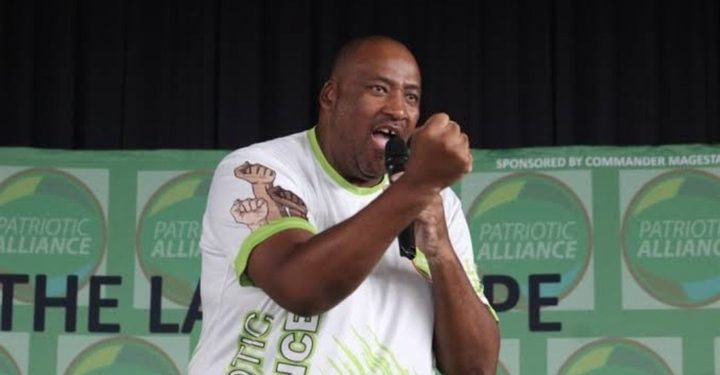Sport Minister Gayton McKenzie has ignited a fierce political debate after defending former Public Protector Busisiwe Mkhwebane against accusations of racism. The outspoken minister responded to an online critic who accused Mkhwebane of racial bias, delivering a sharp retort that quickly went viral on social media.
The controversy began when a prominent online figure, linked to a movement advocating for the Western Cape’s secession, labeled Mkhwebane a racist, citing her handling of high-profile cases during her tenure as Public Protector. The critic alleged that Mkhwebane’s actions were racially motivated.
McKenzie, known for his fiery rhetoric, responded: “You need to be deported as soon as possible. You spread hate & division masked as seeking an Independent State. The Western Cape will never become an enclave for racists.”
You need to be deported as soon as possible, you spread hate & division masked as seeking a Independent State, the Western Cape will never become a enclave for racist #Abahambe https://t.co/gfmINxa3GA
— Gayton McKenzie (@GaytonMcK) October 8, 2024
His remarks referenced the growing secessionist movement in the Western Cape, led by groups pushing for the province’s independence from South Africa. These groups claim governance and economic concerns as their motivation, though many critics, including McKenzie, accuse them of promoting racial exclusion.
McKenzie’s comments sparked widespread attention, with supporters praising his strong stance against what they see as disguised racism. Many condemned the secessionist movement for fostering division in a country already grappling with deep racial tensions.
However, McKenzie’s critics argue that his reaction was extreme, accusing him of stifling free speech and dismissing legitimate concerns some Western Cape residents may have with the national government.
Busisiwe Mkhwebane, whose tenure as Public Protector has been marred by controversy, has faced numerous legal and political challenges, though allegations of racism have rarely emerged so publicly before now.
McKenzie’s bold defense of Mkhwebane highlights the ongoing national debate about race, unity, and identity in South Africa, as political rhetoric surrounding the Western Cape’s future becomes increasingly charged.






















